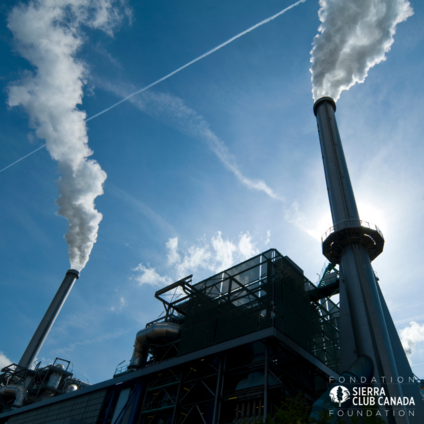
The Ontario government is proposing a plan to implement changes to the Environmental Assessment Act. These changes would not only make it easier for companies to launch experimental technologies that claim to recover fuel and/or chemicals from waste, but they would also remove important public oversight from these controversial projects.
In the last few years, we’ve seen the rise of “green solutions” to plastic waste. The concept of “advanced recycling” or “waste-to-energy incineration” is essentially the burning of garbage and then using the resulting heat to generate energy and electricity. Somehow this has been branded as “green energy” and we’ve seen more and more places adopt this idea.
What Ontario is proposing would allow projects that treat up to 365,000 tonnes of waste per year to avoid an environmental assessment. A project of this size would only go through a simplified environmental screening process with ministry staff instead of a full public assessment. In comparison, the largest waste incinerator currently in operation in Ontario burns less than 200,000 tonnes of waste per year. This would be a significant increase with much less transparency for the public.
The environmental assessment process is intended to allow for public scrutiny of facilities that are likely to have an impact on the environment and local community.
In Newfoundland, a recent proposal to burn up to 250,000 tonnes of plastic waste on the coast was rejected in mid-February after 200 residents submitted comments opposing the project under that province’s environmental assessment process. The facility in Lewisporte proposed by Synergy World Power Newfoundland would have imported around 750,000 tonnes of waste into the province every year — mainly from Europe. The community recognized the dangers of incineration and utilized the environmental assessment process to protect their environment.
The process of converting plastic waste to fuel demands considerable energy, which is supplied by burning fossil fuels. When plastics are burned, they release air pollutants (such as particulate matter), heavy metals (such as lead and mercury) and toxic chemicals such as PFAS and dioxins. These pollutants then enter the nearby air, water and food supplies posing a health risk to local communities. Dioxins in particular are extremely harmful, even at very small levels. It is agreed that exposures to dioxins should be kept as low as possible.
Fuels produced from plastic waste contain more toxic substances, including carcinogens, than regular diesel. There is no provision for monitoring emissions from these fuels if they are burned in a different location from where they are produced (1). The waste-to-energy incineration process, somehow dubbed a “green solution,” adds to the carbon footprint of the plastic lifecycle and jeopardizes the air quality of the surrounding communities.
On top of these risks, incineration just isn’t a solution to the plastic crisis. It does nothing to combat the insurmountable amount of plastic being produced. In fact, these types of “green solutions” incentivize plastic production. We will only continue to need to extract more oil to make new plastics and we will continue to see plastic waste in every corner of the world.
What we need are solutions that support the circular economy. Solutions that focus on the reduction and reuse of plastic packaging and products. And solutions that address the root of the problem: mass consumption and production. Only then will we be able to tackle the plastic crisis.
To support a circular economy, such projects should be banned, not encouraged through deregulations.
This proposal is a missed opportunity for Ontario — and Canada — to take action against plastic waste and to protect both people and the environment. As the United Nations noted in the IPCC Climate Change Report (2022), we are running out of time. We can’t afford to continue with these fake solutions. We want real action on plastics and climate change.
Sierra Club Ontario, along with 16 other environmental groups, submitted a joint letter against the provincial proposal. You can read the full letter here.
You can learn more about the Problem with Plastics Project here.
Footnotes:
1 Patel, D., Moon, D., Tangri, N., Wilson, M. (2020). All Talk and No Recycling: An Investigation of the U.S. “Chemical Recycling” Industry. Global Alliance for Incinerator Alternatives.
